“I gave up my girlfriend because my father said if I marry into another caste my sister will never be accepted by anyone in ours!” “Ankita, they want you to convert if the two of you decide to go ahead with this relationship. Is it something you are fine doing?” “I received death threats from anonymous numbers because I was a Bihari while she is a Rabari, what do I do?” However forward and modern India may be, traditional marriage systems are still deeply entrenched in a majority of parts and communities of the country.
Marriage is considered a sacred institution and signifies a union of not just two individuals but two families. While in the West people normally move out after tying the knot, in India the joint family system is still prevalent and parents have a lot more say in who their children marry.
The arranged marriage system is still extremely popular in India and one basic tenet of this is adhering to strict caste rules. Hindus prefer marrying within their castes, for example, Brahmins marry Brahmins, Rajputs marry into Rajput families, and so on. Among Muslims and Sikhs too, marrying within their sub-sects is a prevalent trend. Jat Sikhs, for example, will not marry into a Ramdasia family. A Sunni Muslim family will traditionally find a match within the Sunni community, Shias within their own, and so on. Jain, Christians, and Parsis too marry within their communities.
It is believed that inter-caste relationships lead to many difficulties and challenges for the couple as well as their families. One of the prevalent disadvantages of inter-caste marriage is the social ridicule and fear of ostracization, which discourages people from deviating from the norm of marrying within their communities. Plus, the partners find it difficult to adapt to each other’s culture.
We had a query where the girl wrote that her parents were threatening to commit suicide if she went ahead with the inter-caste marriage and what her options in such a case were? Inter-caste marriages also result in honor killings, even though there are legal provisions in place to protect couples who wish to marry the person of their choice, outside their caste or community.
Though the situation is changing and people are more open to both inter-caste and inter-religious marriages, this is more in urban India rather than the rural. And even in the most liberal circles, an inter-caste marriage comes with its set of challenges that the couple and the family have to deal with on an almost daily basis. In this article, we will discuss the problems couples usually face after an inter-caste love marriage.
What Are Inter-Caste Marriages?
Table of Contents
To be able to understand this issue in full earnest, we first need to put the inter-caste marriage meaning in perspective. This kind of matrimonial union takes place when two people from different castes fall in love with each other and decide to get married. According to the Indian Human Development Survey, only 5% of marriages in India are inter-caste marriages. This shows that inter-caste marriages in India are still challenged and highly stigmatized even in the 21st century.
People in rural areas face the brunt of an inter-caste marriage far more than in urban India. Urban people are more open to the idea of inter-caste marriages, because of access to education, information and appropriate knowledge. However, in general, love is still dominated by age-old traditions and customs associated with the caste system. Families resort to all sorts of tactics from threatening to commit suicide if their children marry outside the caste to severing ties with them and going to the extremes of honor killing to stop such unions from coming to pass. It is still believed that love marriages violate values that the parents must look for a partner for their offspring and that they know best. Do they?
Are inter-caste marriages successful? Remember the practice of marrying outside one’s caste or even religion has been a long-standing practice in India. A lot of these marriages have been successful too. Think of Jodha Bai and Akbar, for instance. These marriages took place for political, economic reasons and went along just fine.
In the modern landscape too, examples of successful inter-caste marriages in our society are abundantly and readily available all around us. Apart from the average couples next door, there are enough examples from public life to draw inspiration from as well. From Sunil Dutt and Nargis to Shah Rukh Khan and Gauri, power couples from the Indian film industry have been the poster image of not just inter-caste but also inter-faith marriage.
Related Reading: 10 Ways To Convince Your Parents For An Inter-Caste Marriage
The same is true of those in politics too. Indira Gandhi and Feroze Gandhi, Priyanka Gandhi and Robert Vadra, Sachin and Sara Pilot, and Ram Vilas Paswan and Reena Sharma are just some of the many examples of successful inter-caste marriages. In fact, dalit leader, Ram Vilas Paswan, went so far as to say that “that inter-caste marriage is the biggest weapon to end societal divisions”.
This view is also reflected in the Indian government policy on the matter, aligned with the constitutional tenets of secularism, equality and personal liberty. While there is no dedicated inter-caste marriage act, such unions have the legal sanction under the likes of the Hindu Marriage Act, 1955, as well as the Special Marriage Act, 1956.
Besides, the government also runs the Dr. Ambedkar Scheme for Social Integration that incentivizes marriages between people from scheduled castes and non-scheduled castes. There is also a provision for offering protection to couples who fear backlash from their families, including the risk of honor killings, for choosing to marry outside their caste, community or faith.
Despite all the sweeping socio-economic changes and legal sanctions, inter-caste marriages still prove to be a hurdle for thousands of couples. Even though people have opened up about inter-caste and inter-faith marriages, they still come riddled with issues and problems that need to be dealt with and taken care of.
Why are inter-caste marriages not accepted?
Despite the claims that we are modern and things such as caste, religion, and economic status do not bother us, deep down we know that these things can never really be ignored. More so when it comes to the sacred institution of marriage. Inter-caste marriages are not easily accepted in Indian society because of the following reasons:
- Perceived against tradition: Inter-caste marriage is seen as breaking up of centuries-old tradition and messing up the hierarchical system. The staunch supporters and guardians of the system will never let this go easily as in one sense it will mean they are losing control and order. The constant fear of the torture the couple and their family will face is a big concern
- Apprehensions about adjustment and acceptance: Adherence to strict norms in different castes raises concerns over discord in the marriage. One may be meat eaters while the others refrain totally; one may believe in a certain style of dressing which is a big no-no in another. Adjusting to the other’s lifestyle is seen as a huge hindrance. Perhaps the families will not be involved with each other, etc
- Family honor: The strain on the family name, honor and reputation, also diluting the pure race in case of inter-caste marriage is a concern for many. Honor killing is a rampant phenomenon in Indian states like Rajasthan, Uttar Pradesh and Haryana which discourages couples belonging to different castes from getting married
- Fear of genetic deformities: There is also the concept of Gotra that prevails in most parts of north India. Sharing common ancestors is termed as Gotra and many believe that if they share the same gotra somewhere the children are related by blood and hence a marriage between them can be incestuous and lead to genetic deformities in their offsprings
By rejecting inter-caste marriages, the evils of the caste system still get validation and carry on. The world is becoming global and we cannot let something that was made centuries ago divide people and communities. But everything said and done even though we may not feel these differences as we fall in love with people from different castes while pursuing our higher studies or in our jobs, turning those relationships into a serious commitment like marriage will have bearings because at the end familiarity does bring a sense of comfort and hailing from different castes is bound to topple that. Inter-caste marriages will bring their unique issues and we present them to you here.
Before You Get Into It Ask Yourself These Questions
While there is no reason why you shouldn’t follow your heart and marry someone you truly love, a marriage takes more than just love to survive and thrive. In a culture like ours, inter-caste marriage issues are bound to crop up as two partners from different communities integrate their lives.
Since this will need more grit and patience than normal, you must be absolutely sure that what you are feeling is indeed love and the two of you have some amount of compatibility. Before you make up your mind to go all in and have an inter-caste marriage, ask yourself these questions:
- Is it really love or just a passing infatuation?
- Have both of you discussed important aspects like how many kids, whether this will be a joint family or nuclear, how ambitious each is and how comfortable the other is with it?
- Do your life goals align at least at some basic level?
15 Real Problems After Inter-Caste Marriages
We have achieved high levels of growth rate path-breaking developments in technological fields and helped achieve equality in the form of education for all. But then, we also look down upon people marrying for love or the ones who question what has been told. We expect them to solve new issues using their innovative strategies yet in the matters of the heart, we want them to do as told.
We send them away to study, encourage them to make life decisions, learn more and become independent, but in marriage and love, we profess we know better than them. No wonder inter-caste marriages still face many issues. Two people in love with each other are not allowed to be together just because they belong to different castes. How can we call India a progressive and modern country then?
The need of the hour is to deal with the challenges faced by inter-caste marriages in the country in a manner that love triumphs over the evils of the caste system. Knowing the problems faced by inter-caste couples is one step in this direction. For instance, what if your partner gets beaten up for wanting to marry outside the caste or is locked up in the house? Is your relationship strong enough to surmount such challenges? If so, how?
What about the hardships that begin after you’re married? What if you both have to give up your families to be together? Will that lead to resentment in the marriage? Are you equipped to build a life together without the familial support system?
Let’s explore these and many other potential problems you have to brace for. Here are the 15 common inter-caste marriage issues that couples have to deal with:
1. The couple is disowned by the families
This is one of the major issues faced by people going for inter-caste marriages. The couples who against all odds do marry each other are disowned for this transgression by their families. They are not allowed to visit or receive any help in setting up their new homes. The families cut ties and some even refuse to speak to them.
The kids born from these marriages also lose out on the love and blessings from both sets of grandparents. This remains one of the top disadvantages of inter-caste marriage. You and your partner need to introspect whether your relationship can endure this loss, not just now but years down the line as well. Will it turn your union into an unhappy marriage in the long run?
2. The couple is ostracized by the community
It is not only the families of the couple that disown and cut off ties with the couple, but the community at large also excludes them. One couple wrote that they stopped going to the club as no one would sit with them at the same table anymore. The community people do not interact with the couple and ignore the couple’s existence.
In rural areas, they are forbidden to stay in their village. The success rate of inter-caste marriage in India notwithstanding, this kind of social isolation can become hard to deal with over time. You may have to relocate to a new place and build your life from scratch. Even then, the reality of losing your roots can be hard to make peace with.
3. Social pressure makes life stressful for the couple
Since inter-caste marriage is not well accepted in Indian society, the couple has to face a lot of societal pressure. While renting apartments, landlords create issues because of the inter-caste marriage badge. The couple may have no friends or relatives who come forward to extend any help.
Essentially, your world gets reduced to just your partner and vice versa. Given that humans thrive on social interactions, this can turn out to be one of the major inter-caste marriage issues. If you don’t have friends or extended family who are supportive of your decision, life after an inter-caste marriage can become immensely isolated and stressful.
Related Reading: We couldn’t marry because of family “honour”
4. Lifestyle differences are difficult to cope with
The partners will have different lifestyles and cultures since they belong to different castes. What if one is conservative and the other modern? One is a staunch vegetarian while the other a lover of meat? Often the value systems are very different. For one a certain festival is important while for another a different one. What gets more important? Who celebrates what? How much money is spent on one against the other?
This means that they have to adjust and accommodate these differences. A majority of the couples fail to do so because of which arguments and fights become a common phenomenon among couples. Perhaps the parents see this and hence try and convince children not to take this step or refuse to allow them to marry at all.
5. Continuous interference of the family members in married life
Even if the families approve inter-caste marriage, one notices that there is continuous interference of the family members in the life of the married couple. They try to impose their family and caste norms on the couple at all times. Under such pressures, the love usually takes a backseat and the couple finds itself engrossed in caste politics.
Another one of the disadvantages of inter-caste marriage is that your relationship is always viewed from the prism of caste. Even if the most common relationship problems are attributed to differences in your background and upbringing. When reiterated over and over again, this can become a sore point in the couple’s equation.
6. Superiority complex may damage the relationship
One of the partners might think that his/her caste is superior to that of the partner. This will create attitudinal and behavioral issues. One may treat the other disparagingly or be dismissive of their opinions and suggestions because they’re unable to shake off years of deep-seated “I am superior” conditioning. Over time, this may lead to resentment and create a deep divide between the couple.
This is one of the biggest problems of inter-caste love marriage. Differences in how things are done can be a huge factor that can lead to fights and arguments as well. This could lead to decreasing love and care for each other, eventually adding to the stereotype that inter-caste marriages have a lower success rate of survival.
7. Survival becomes difficult for the couple
Honor killings have become extremely rampant in the country. According to a study released in 2020, more than 300 honor killings have been reported in India between 2015 and 2018. Mind you, these are only the reported cases. Therefore, it is obvious that the couple will live in constant fear, as their survival will become difficult.
In some cases, the couples have had to leave their jobs and relocate to a new country to avoid this. They lose their seniority at the workplace and may not be able to find appropriate jobs without recommendations. In a recent case reported in Karnataka, an inter-caste couple was attacked after nearly 28 years of marriage. If your families or communities are extremely traditional or conservative, an inter-caste marriage can mean living in constant fear of backlash.
8. Financial issues are faced by the couple
The couple is left to fend for themselves. They get no support from their families and maybe even friends. Remember a huge part of a couple starting a new life is the presents they get in the form of wedding gifts. Refrigerator from one set of parents, T.V from another, maybe a maternal uncle buys then kitchen appliances, another gets them an air-con.
With no support whatsoever, the newly-wed couple is left to their two salaries (if both are working) to make ends meet. Parents do not pitch in with children, setting up the home either with energy or moral support either. Due to this, financial issues are faced by the couple, which leads to further emotional strain on the alliance.
9. The couple has to suffer professionally as well
Many times, the couple has to suffer professionally as well. Inter-caste marriage might not be accepted by the respective offices of both the partners and coworkers might treat them with contempt. One may face harassment in the working space and may have to quit on unethical grounds too.
Even though no organization can have an official stance against inter-caste marriages, people’s biases often run too deep and it can become increasingly hard to fight them at every step of the way. If your boss passes you over for promotion or your coworkers no longer want to socialize with you because of the life partner you chose yourself, sticking around and prospering in that job can become untenable.
10. The couple has to listen to taunts regularly

After marriage, the couple has to listen to regular taunts. Despite accepting the marriage, relatives and friends look for ways to insult and humiliate the couple. For instance, the wife is always criticized for her dress sense, her looks, etc. by the mother-in-law, grandmother-in-law and aunties in the family.
She would expect her spouse to stand up for it and he may not have the energy or the courage. The couple might be well-matched and happy with each other after an inter-caste marriage but the relatives can play a huge spoilsport with their constant judging.
11. The couple might have disagreements when it comes to raising children
Disagreements might take place between the couple on the issue of raising their children. For instance, there will be a difference of opinion regarding which religion or caste the children must follow and so on. What festivals should be celebrated, which God/s to be worshipped, what cultural ethics to be imparted – and this may take a toll on the relationship.
Such inter-caste marriage issues are common and need delicate handling from both spouses. Your respective perspectives on having and raising children is among the crucial things to discuss before marriage, especially if in an inter-caste union.
12. Instability in the inter-caste marriage
Normally, friends and family jump in to help the newlyweds in their fights and issues. They advise, mentor and guide. They distract and help vent off steam between couples too. But in an inter-caste marriage, this support is usually missing. Besides, friends and family are not emotionally or otherwise equipped to help as they do not get the context themselves.
The chances of an inter-caste marriage running into trouble are higher because of the constant difference in attitude and interests- cooking, eating habits, how to decorate the home, how to be around in-laws. Therefore, the married and family life of an inter-caste couple is usually choppy. Every small argument has the potential to turn into a ‘yours’ versus ‘mine’ debate.
This can make you question, “Are inter-caste marriages successful?” Yes, they can be but you need to put in Herculean effort, topped with huge dollops of patience, to make it work.
13. Psychologically inter-caste marriage is exhausting
Since both partners have to sacrifice so much to be together, they may struggle to realistically set and manage their expectations in the relationship. Besides, being each other’s be-all-and-end-all can get exhausting beyond a point. If the inter-caste couple is unable to live up to the expectations of each other then the couple is bound to regret their decision and blame each other.
As a result, the couple will get frustrated and remain unhappy with each other. The baggage of having given up so much can further compound this unhappiness, making the marriage a rocky road for both spouses.
14. The children of the inter-caste couple also face discrimination
The children of the inter-caste couple are always in a dilemma of which caste or religion they belong to. Even when they are asked, they fail to give a clear-cut answer regarding this, due to which they are treated differently by other people. They feel even more confused than their peers and cannot identify with the popular zeitgeist.
The risk of your children being judged by their peers or society or struggling to find acceptance is among the top disadvantages of inter-caste marriage. The struggles faced by the children when they venture out in the real world have a way of spilling over and affecting the parents’ bond as well.
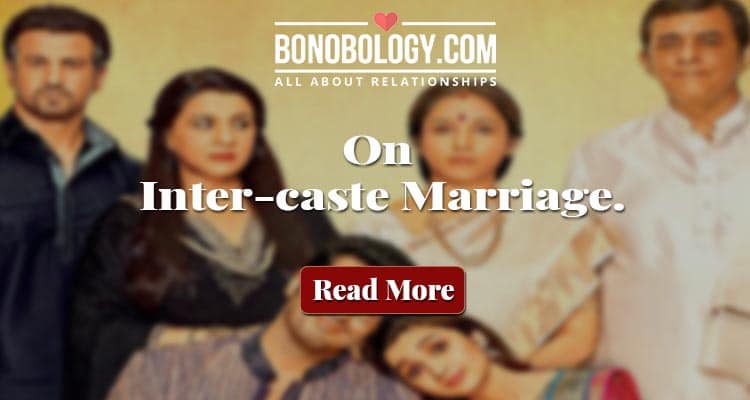
15. Inheritance related issues are common in an inter-caste marriage
Generally, both families fail to accept the inter-caste couple, due to which inheritance-related issues become common. The inter-caste couple may have to deal with property and wealth disputes to get their rightful share.
As you can see, the inter-caste couple has to go through a lot of family problems and troubles to be together and have a happy married life. By being prepared to face these issues and supporting each other at all times, an inter-caste couple can succeed in having a prosperous married life.
Coping tips when you have an inter-caste marriage
Good communication, understanding, and love in an inter-caste marriage can help make a strong and long-lasting relationship between the couple. Inter-caste marriage has to be built on the foundations of true love, respect, honesty, trust, and sincerity. The families of the couple have to be given enough time and space. Understanding the perspectives of the parents and the families is essential for having a successful inter-caste marriage.
The couple has to be liberal, be more accepting of new ideas, and adopt new habits. Respect each other’s native rituals and give space to the other to carry on the way they want to. Raise children in a manner that caste, religion, etc. do not hamper their growth and development.
We hope that one-day inter-caste marriage gets accepted by Indian society and paves the way for the national integration of the country. It is high time we leave our narrow mindsets and prejudices behind and help our country progress in the true sense of the term.
FAQs
Yes, inter-caste marriages can be successful. In fact, you can find many examples of successful inter-caste marriages both in public life as well as around you. However, given our societal structure, an inter-caste couple typically has to face greater challenges as compared to those who marry within their castes. It needs a lot of maturity, understanding, effort and patience to make the marriage work.
There is nothing wrong with an inter-caste marriage. In fact, it can serve as an effective tool to demolish the centuries-old caste system and even out societal divisions. The problem lies in our cultural conditioning and mindsets, owing to which many couples still don’t find acceptance and support from their families and society at large in their decision to marry outside the confines of caste and communities.
Your contribution does not constitute a charitable donation. It will allow Bonobology to continue bringing you new and up-to-date information in our pursuit of helping anyone in the world to learn how to do anything.

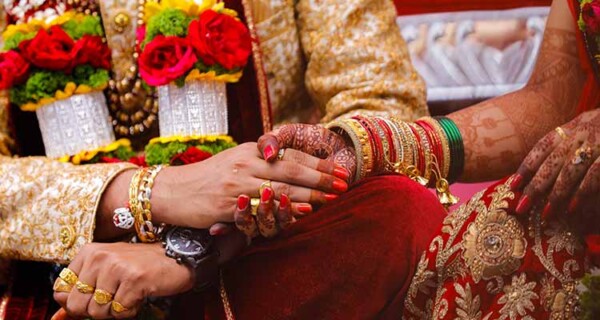



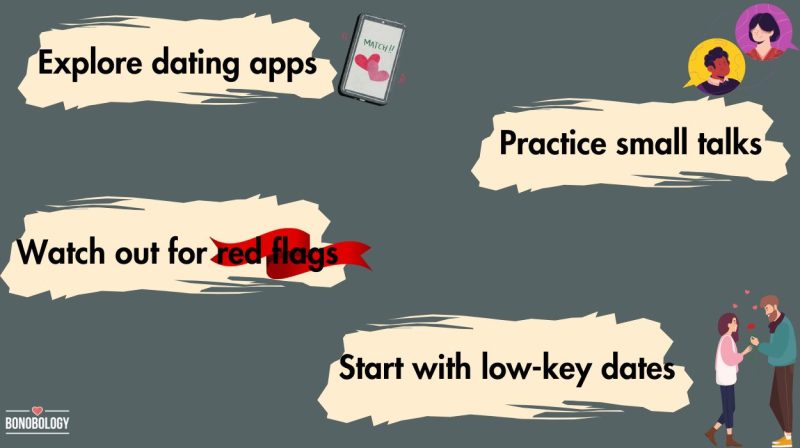


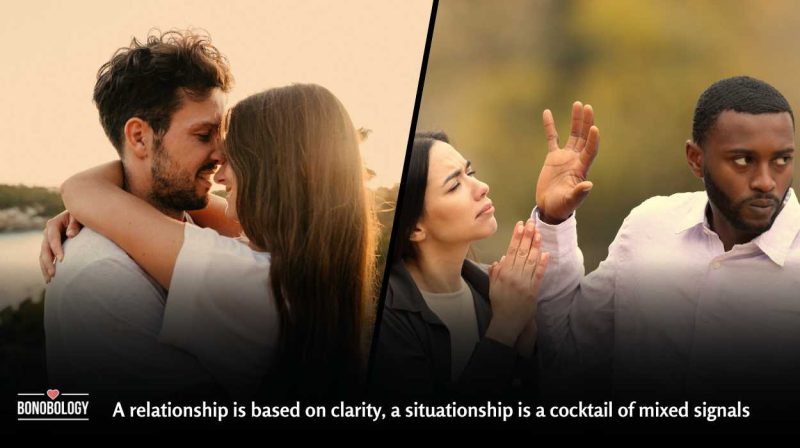




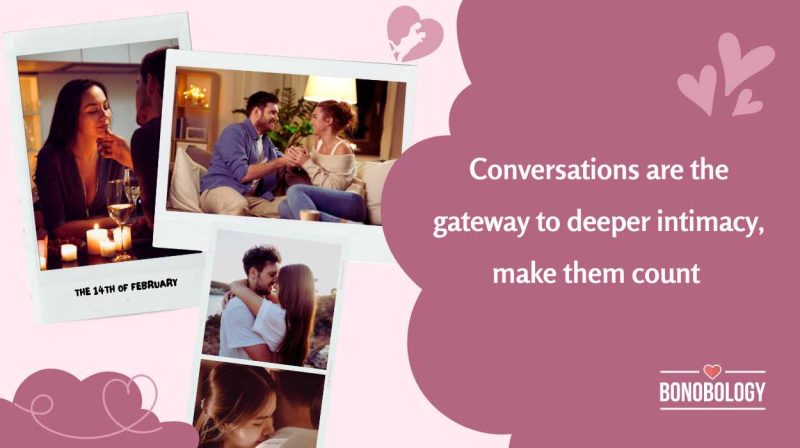



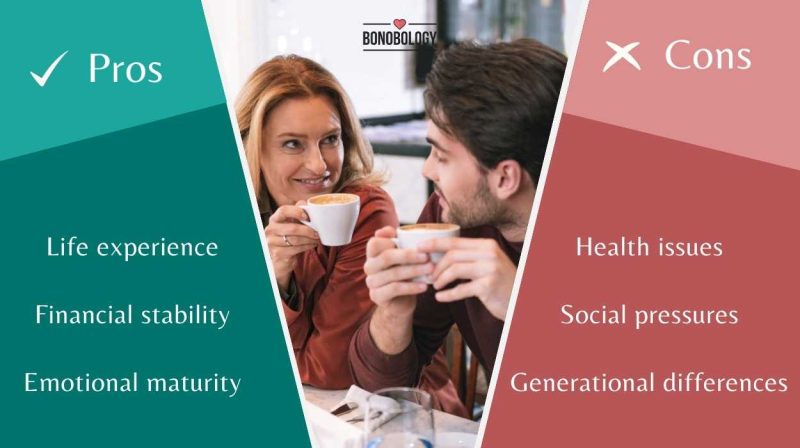


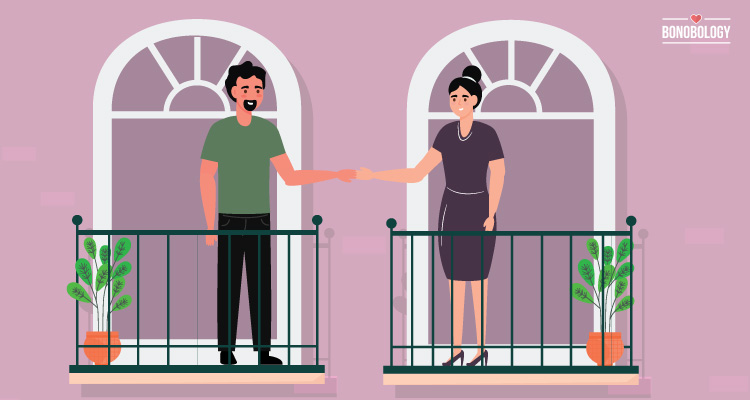


Excellent article in respect of Inter Caste marriages in real world and facts